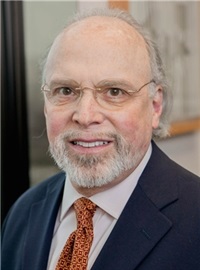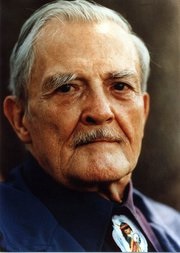L'art (le talent artistique) de Milton H. Erickson, M.D.
- Average Rating:
- Not yet rated
- Topic Areas:
- Hypnosis | Milton Erickson | Psychotherapy | Ericksonian Hypnosis and Therapy Techniques | Trance
- Categories:
- Artistry of MHE | Milton H. Erickson Collections | French | World Languages
- Faculty:
- Herbert S. Lustig MD | Milton H. Erickson MD
- Course Levels:
- Master Degree or Higher in Health-Related Field
- Duration:
- 01:40:00
- Format:
- Audio and Video
- Original Program Date:
- Apr 28, 1975
- License:
- Never Expires.
Description
Cette vidéo est en anglais avec une transcription en francais.
Cette vidéo comporte une séance de thérapie avec deux clients: Monde et Nick. Monde est un 32 ans, les femmes qui se marient avec trois enfants. Monde a eu trois séances de thérapie avec le Dr Erickson et a été exposé à l'hypnose dans les sessions antérieures. Monde est de voir le Dr Erickson parce qu'elle est un sentiment d'insécurité sur elle-même en tant que personne, mère et épouse. L'autre client, Nick, est un étudiant en deuxième année de 20 ans dans un collège qui n'a pas eu l'expérience précédente avec l'hypnose ou la psychothérapie. En outre, Nick est une connaissance du Monde et son mari. La séance de thérapie se déroule en deux parties: la première partie implique Monde que le patient primaire, tandis que Nick est le patient secondaire et la deuxième partie consiste à Nick que le patient primaire et Monde que le patient secondaire.
Sélectionnez l’article que vous souhaitez acheter, puis ajoutez-le au panier.
Procéder au règlement.
Sélectionnez «Je suis un nouveau client"
Remplissez vos informations
Validez votre paiement
Cliquez sur votre compte pour voir le produit
Cliquez sur l’onglet en haut pour les options de visualisation à savoir. transcriptions
Options de sous - titrages disponibles en faisant passer votre souris en bas à droite de la vidéo
Credits
Faculty

Herbert S. Lustig MD Related Seminars and Products
Herbert S. Lustig, MD, was a student and colleague of Dr. Erickson during the six years preceding Dr. Erickson's death. He has provided private outpatient psychiatric treatment to Children, Adults & Families on Philadelphia's Main Line since 1973 and in South Jersey since 1983, and presently at his offices in Bala Cynwyd, PA, and in Marlton, NJ.

Milton H. Erickson MD Related Seminars and Products
Milton H. Erickson, MD, was an American psychiatrist who specialized in medical hypnosis and family therapy. He was founding president of the American Society for Clinical Hypnosis and noted for his approach to the unconscious mind as creative and solution-generating.
Dr. Erickson was plagued with enormous physical handicaps for most of his life. At age 17, he contracted polio and was so severely paralyzed that doctors believed he would die. While recovering in bed, almost entirely lame and unable to speak, he became strongly aware of the significance of nonverbal communication – body language, tone of voice, and the way that these nonverbal expressions often directly contradicted the verbal ones. He also began to have “body memories” of the muscular activity of his own body. By concentrating on these memories, he slowly began to regain control of parts of his body to the point where he was eventually able to talk and use his arms again. His doctor recommended exercising his upper body only so Milton Erickson planned a 1,000 miles canoe trip to build up the strength to attend college. His adventure was challenging, and although he still did not have full use of his legs at the end, he was able to walk with a cane.
The Ericksonian approach departs from traditional hypnosis in a variety of ways. While the process of hypnosis has customarily been conceptualized as a matter of the therapist issuing standardized instructions to a passive patient, Ericksonian hypnosis stresses the importance of the interactive therapeutic relationship and purposeful engagement of the inner resources and experiential life of the subject. Dr. Erickson revolutionized the practice of hypnotherapy by coalescing numerous original concepts and patterns of communication into the field.
The novel psychotherapeutic strategies which Dr. Erickson employed in his treatment of individuals, couples, and families derived from his hypnotic orientation. Although he was known as the world’s leading hypnotherapist, Dr. Erickson used formal hypnosis in only one-fifth of his cases in clinical practice.
Dr. Erickson effected a fundamental shift in modern psychotherapy. Many elements of the Ericksonian perspective which were once considered extreme are now incorporated into the mainstream of contemporary practice.


